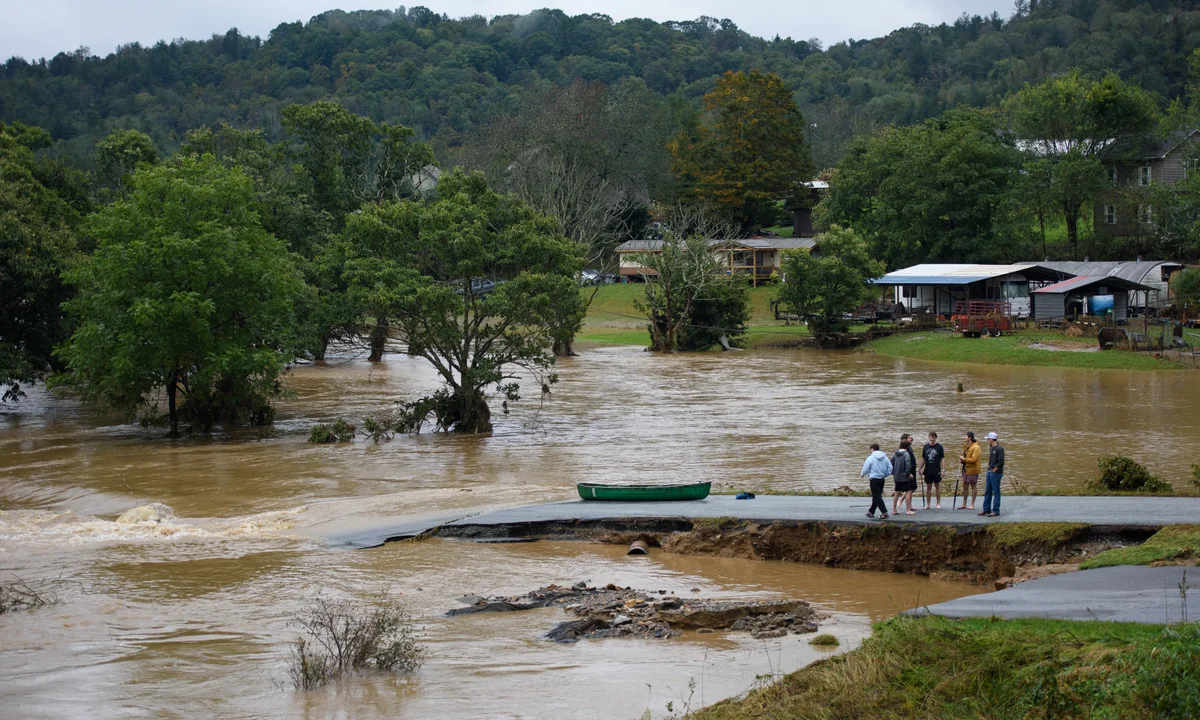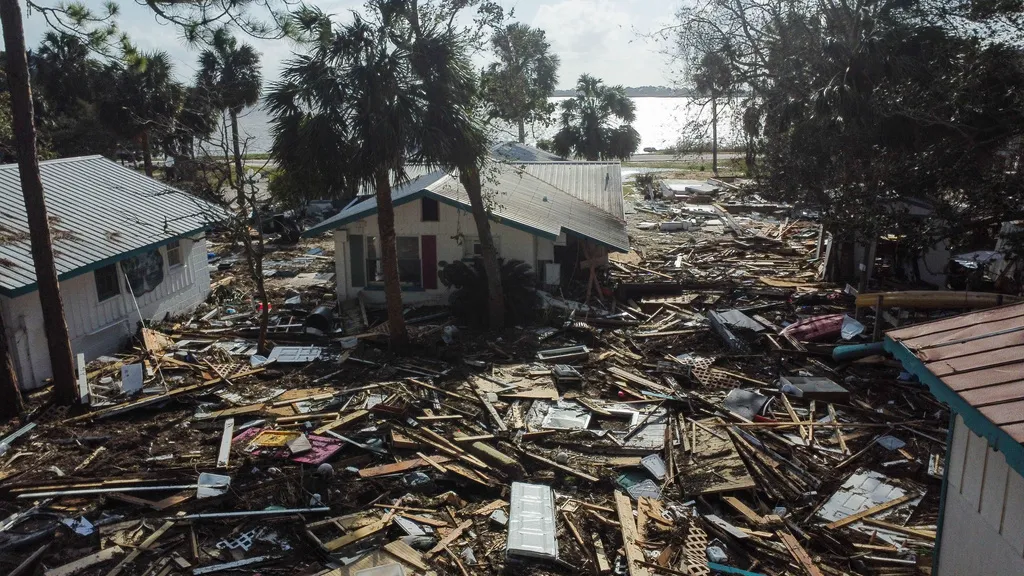Hurricane Helene, the most powerful storm to ever hit Florida’s Big Bend region, made landfall Thursday, causing catastrophic damage across five states: Florida, Georgia, South Carolina, North Carolina, and Virginia.
The hurricane, which has claimed at least 62 lives, left millions without power and unleashed torrential flooding, is being described as one of the most devastating natural disasters to hit the Southeast in recent memory. Among the fatalities are 23 people in South Carolina, 17 in Georgia, 11 in Florida, 10 in North Carolina, and one in Virginia. Emergency services are stretched thin, working around the clock to respond to the destruction.
North Carolina has been particularly affected, with many roads flooded and nearly 400 roads closed. Residents are trapped without basic necessities, and over 60 people are still unaccounted for. Emergency services have been overwhelmed with calls, conducting hundreds of rescues amid disrupted communication systems and widespread outages.
In one county alone, 20 air rescues had to be conducted, with many people trapped in dangerous conditions without oxygen or medical supplies. Massive landslides, downed trees, and power lines have hampered rescue operations, making access difficult for emergency workers.
Clean drinking water has become a critical issue as seven water plants across North Carolina are offline, affecting nearly 70,000 households. With no power at 17 water plants and more than 50 boil water advisories in place, the situation is dire for residents, especially in rural areas.

Beyond the water crisis, nearly 2.5 million people remain without electricity across the Southeast, including tens of thousands in Florida, Georgia, and the Carolinas. The destruction has severely impacted daily life, leaving countless families displaced and searching for resources.
Georgia, like other states, has been ravaged by Helene’s impact. Governor Brian Kemp likened the devastation to a bomb going off, with communities left in ruins. Among the victims in Georgia are a mother and her twin infants, alongside a 7-year-old boy and a 4-year-old girl. In South Carolina, officials described the event as the worst flooding in history.
Thousands of residents across the state have been displaced, and emergency efforts have been hampered by flooded roads, destroyed bridges, and persistent rains.
Florida bore the brunt of the hurricane’s initial landfall, with widespread damage leaving entire communities in ruins. Governor Ron DeSantis described parts of the state as “completely obliterated,” especially along the coast. Power outages, boil water notices, and significant displacement have affected hundreds of thousands of people, with many unable to return to their homes.
Some of the hardest-hit communities are the same ones that have been struck by hurricanes Idalia and Debby in recent years, compounding the devastation.
Though Helene has weakened to a post-tropical cyclone, heavy rainfall continues to plague the region, particularly in the Appalachian areas of North Carolina, Tennessee, Virginia, and West Virginia.
The National Weather Service warned that while the ongoing rainfall may not exacerbate flooding, the saturated ground could lead to dangerous runoff. Rescue and recovery efforts are underway, but the road to normalcy will be long, with many areas still inundated by floodwaters and isolated due to washed-out bridges.
Amid the destruction, residents are facing extreme challenges. In Asheville, North Carolina, one resident, Stevie Hollander, described how floodwaters nearly engulfed his apartment complex. With roads blocked and supplies running low, residents have been left stranded, some without food, water, or power.
Others, like Sofia Grace Kunst, narrowly escaped a landslide that smashed through a dining hall, highlighting the unpredictable and dangerous nature of the storm’s aftermath. For many, the emotional toll has yet to sink in fully, but the physical destruction is evident.
Businesses are also reeling from the storm’s devastation. In Asheville, Patrick McNamara, who runs a small milk distribution company, returned to find his warehouse destroyed, with spoiled milk and ruined machinery scattered in the mud.
Despite the losses, he remains hopeful that the community will band together to rebuild and recover in time for the tourist season. However, the challenges are immense, and recovery efforts will require significant coordination, resources, and support from both local and federal governments.

